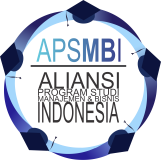The Influence of Islamic Attributes of Destination towards Destination Loyalty with Tourist Satisfaction as an Intervening Variable
Abstract
The purpose of this research are to analyze : (1) the influences of Islamic attributes of Destination on Destination Loyalty, (2) the influences of Islamic attributes of destination on tourist satisfaction, (3) the influences of tourist satisfaction on destination loyalty.
The type of this research is causative research. The population on this research is Muslim traveler that already visited Kabupaten Pesisir Selatan. The total sample of this research was 281 people by using online questionnaire. The result of research show that (1) Islamic attributes of destination has significant influences on destination loyalty, (2) Islamic attributes of destination has significant influences on tourist satisfaction (3) Tourist satisfaction has significant influence on destination loyalty.For the future research it is better to explore more about variable that can influence destination loyalty.
Keywords
Full Text:
PDFReferences
Abou-shouk, M., Lim, W. M., Megicks, P., & Fayoum, A. (2012). Internet Adoption by Travel Agents : a. International Journal of Tourism Research, 15. https://doi.org/10.1002/jtr
Al-Hamarneh A, Steiner C. 2004. Islamic tourism: rethinking the strategies of tourism development in the Arab world after September 11, 2001. Comparative Studies of South Asia, Africa and the Middle East 24(1): 173–182
Almeida-Santana, A., & Moreno-Gil, S. (2018). Understanding tourism loyalty: Horizontal vs. destination loyalty. Tourism Management, 65, 245–255. https://doi.org/10.1016/j.tourman.2017.10.011
Antón, C., Camarero, C., & Laguna-García, M. (2017). Towards a new approach of destination loyalty drivers: satisfaction, visit intensity and tourist motivations. Current Issues in Tourism, 20(3), 238–260. https://doi.org/10.1080/13683500.2014.936834
Asmelash, A. G., & Kumar, S. (2019). Corrigendum to “Assessing progress of tourism sustainability: Developing and validating sustainability indicators” [Tourism Management, 71 (2019) 67–83] (Tourism Management (2019) 71 (67–83), (S0261517718302346), (10.1016/j.tourman.2018.09.020)). Tourism Management. https://doi.org/10.1016/j.tourman.2019.02.007
Awalia, H. (2017). Komodifikasi Pariwisata Halal NTB dalam Promosi Destinasi Wisata Islami di Indonesia. Jurnal Studi Komunikasi (Indonesian Journal of Communications Studies), 1(1), 19–30. https://doi.org/10.25139/jsk.v1i1.64
Battour, M., & Ismail, M. N. (2014). The Role of Destination Attributes in Islamic Tourism. SHS Web of Conferences, 12, 01077. https://doi.org/10.1051/shsconf/20141201077
Bazazo, I., Elyas, T., Awawdeh, L., Faroun, M., & Qawasmeh, S. (2017). The Impact of Islamic Attributes of Destination on Destination Loyalty via the Mediating Effect of Tourist Satisfaction. International Journal of Business Administration, 8(4), 65. https://doi.org/10.5430/ijba.v8n4p65
CrescentRating. (2018). Global Muslim Travel Index 2018. (April). Retrieved from https://www.crescentrating.com/download/thankyou.html?file=X7UrOM8Y_GMITI-Report-2018-web-version%281%29.pdf
CrescentRating, Mastercard, & Kementerian Pariwisata. (2019). Indonesia Muslim Travel Index 2019. (April).
El-Gohary, H. (2016). Halal tourism, is it really Halal? Tourism Management Perspectives, 19, 124–130. https://doi.org/10.1016/j.tmp.2015.12.013
Kotler, P., & Keller, K. L. (2009). Manajemen pemasaran Jilid 1. In Jakarta.
Lembaga Penyelidikan Universitas Indonesia. (2018). Laporan Akhir Kajian Dampak Pariwisata Terhadap Perekonomian Indonesia. In Universitas Indonesia.
Masful, M. F. (2017). Halal Tourism: A Value of Local wisdom and Belief Concept in Rural Area Pilubang Payakumbuh, West Sumatera. The Messenger, 9, 1–8.
Pemerintah Kabupaten Pesisir Selatan - Jumlah Kunjungan Wisatawan Ke Pessel Meningkat. (2019). Retrieved from https://berita.pesisirselatankab.go.id/berita/detail/jumlah-kunjungan-wisatawan-ke-pessel-meningkat
Rahman, M. K. (2014). Motivating factors of Islamic Tourist’s Destination Loyalty: An Empirical Investigation in Malaysia. Journal of Tourism and Hospitality Management, 2(1), 63–77.
Rizal, M., Rachma, N. and Priyono, A. (2019). ANALISIS PENGARUH ELECTRONIC WORD OF MOUTH TERHADAP LOYALITAS DESTINASIDIMEDIASI CITRA DESTINASI DAN KEPUASAN WISATAWAN (Studi Kasus Pada Wisata Paralayang Kota Batu). [online] Riset.unisma.ac.id. Available at http://riset.unisma.ac.id/index.php/jrm/article/view/4455/3987 [Accessed 8 Nov. 2019].
Sapta Nirwandar, H. (2015). Halal Lifestyle In Indonesia The Contribution of Islamic Culture and its Impact on the Asian Tourism Market Brunei Darussalam. UNWTO Seminars The. Retrieved from http://cf.cdn.unwto.org/sites/all/files/pdf/best_practice_halal_life_indonesia.pdf
Suid, I. S., Nor, N. A. M., & Omar, H. (2018). A Review on Islamic Tourism and the Practical of Islamic Attributes of Destination in Tourism Business. International Journal of Academic Research in Business and Social Sciences, 7(12), 255–269. https://doi.org/10.6007/ijarbss/v7-i12/3609
Syed OA. 2001. Catering to the needs of Muslim travellers. Paper presented at the 2nd Conference of Ministers from Muslim Countries, Tourism: Challenges and Opportunities, Kuala Lumpur, 10–13 October
Wardi, Y., Abror, A., & Trinanda, O. (2018). Halal tourism: antecedent of tourist’s satisfaction and word of mouth (WOM). Asia Pacific Journal of Tourism Research, 23(5), 463–472. https://doi.org/10.1080/10941665.2018.1466816
Wattanacharoensil, W., La-ornual, D., Weed, M., World Travel and Tourism Council, Tourism, W., & Unwto, O. (2019). Travel and Tourism: World Economic Impact 2019. Current Issues in Tourism, 75(3), 353–369. https://doi.org/10.2167/cit/mp004.0.
DOI: http://dx.doi.org/10.24036/jkmw0284870



